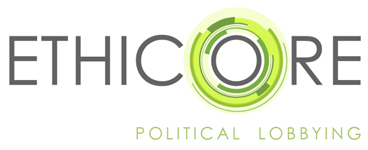 By Abdul Waheed Patel: Managing Director, ETHICORE
By Abdul Waheed Patel: Managing Director, ETHICORE
It’s dominated our news and media for months since the Minister of Cooperative Governance and Traditional Affairs promulgated the official date two months ago on 4 March 2011. Our streetlight masts, highway billboards, Facebook pages and Twitter feeds have been covered and saturated with calls for electoral support.
 From service delivery protests, toilets and sanitation, to running water and electricity supply, from municipal billing and rates problems, to job creation and infrastructure development. After two voter registration weekends, a total of 55 684 candidates and 121 political parties, 1 081 667 new registered voters, some 23,6 million voters later and much political bickering and mud slinging… in less than 9 hours South African’s will take to the polls for the eighth time since the dawn of democracy in 1994 and for the fourth democratic local government elections.
From service delivery protests, toilets and sanitation, to running water and electricity supply, from municipal billing and rates problems, to job creation and infrastructure development. After two voter registration weekends, a total of 55 684 candidates and 121 political parties, 1 081 667 new registered voters, some 23,6 million voters later and much political bickering and mud slinging… in less than 9 hours South African’s will take to the polls for the eighth time since the dawn of democracy in 1994 and for the fourth democratic local government elections.
While the build-up to the local government elections and the battle for the hearts and minds of South African voter has been dominated by the burning issues of the day, the focus now shifts to the much anticipated election results.
Who will be the victorious winners, proudly claiming to the political detractors and opponents, “We told you so”? And who will be the sore losers, licking their wounds?
Will the ruling African National Congress steal a landslide victory? Or will the controversies over: service delivery protests; Julius Malema’s hate speech trial; Trevor Manuel and Jimmy Manyi’s public spat; President Jacob Zuma’s popularity ratings; governance failures; ineffective service delivery; crime and corruption; the horrific and sad killing of Andries Tatane by the policy in the Free State Province; and continued concerns about fraud, corruption and maladministration weigh down it?
Will the Democratic Alliance (DA) and Helen Zille’s wooing of the black vote eat into the traditional strongholds of the ruling ANC? Can the DA really ‘deliver for all’?
Can the Congress of the People (COPE) rise above its internal leadership battles and reorganize, reposition and present itself as a viable and alternative opposition political party to the DA?
Which smaller opposition and minority parties will emerge as kingmakers in the municipal councils where political power hangs on a knife’s edge and in the balance?
Which coalitions and political marriages of convenience will come into being and hold the key to political victory and success?
Will it be a high poll and voter turnout? Or will low voter turnout and a stay away indicate the level of voter disenchantment? Or just another paid glorious public holiday for the ordinary citizen?
Ultimately, only time will tell.
Irrespective of the election results and the speculative nature of these questions, at ETHICORE informed by the mandate and goals of our Governance and Regulatory Affairs Practice, our focus is firmly on the state of local government beyond the election results. It is a concern with how best local government will operate in such a manner so as to enable an environment conducive to sound engagement, dialogue and conversation with key local government stakeholder audiences to address a number of pragmatic and pertinent practices, irrespective of political allegiance. These are areas of practice critical to the central objects and tenets of local government as enshrined in the Constitution of the Republic of South Africa.
Critically, it includes the principle and central tenet of accountable and participatory local government characterised by:
- Public input, consultation, participation and comment in the formulation and passing of municipal by-laws and approvals of budgets.
- Constructive dialogue, engagement, listening and conversation with local communities and stakeholders.
- Conducting its business in an open and transparent manner.
- Cooperative governance with the national and provincial spheres of government.
Critical in this regard, is serious introspection and reflection by both local authorities, communities and organized institutions and key local government stakeholders, about how to achieve and sustain at local governmental level true, meaningful and innovative:
- Accountability and transparency.
- Dialogue, conversation and engagement.
- Access to information and decision-making.
- Community and local stakeholder relationship management.
 In addition to service delivery, the measurement of performance by local government and against these areas of practice will be the true test of whether those political parties and leaders elected into power by South African voters, and in whom voters placed their trust and hopes, honours their commitment to the electorate, their own self-consciousness and their sense of duty to society.
In addition to service delivery, the measurement of performance by local government and against these areas of practice will be the true test of whether those political parties and leaders elected into power by South African voters, and in whom voters placed their trust and hopes, honours their commitment to the electorate, their own self-consciousness and their sense of duty to society.
X marks the spot. But only time will tell whether the treasure trove our nations people so desires and deserves will be unearthed.
Happy voting!
